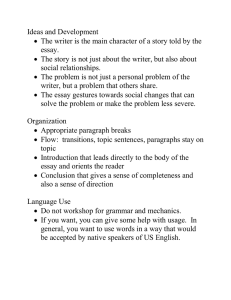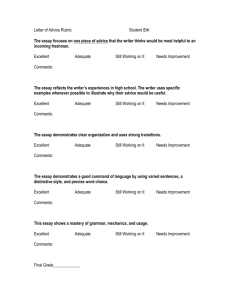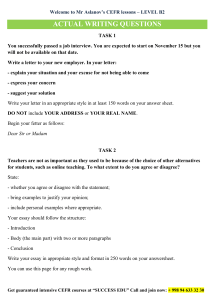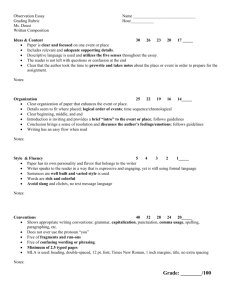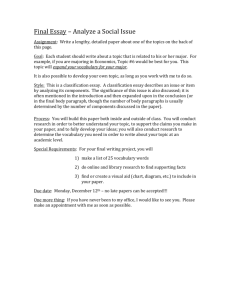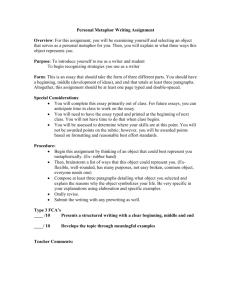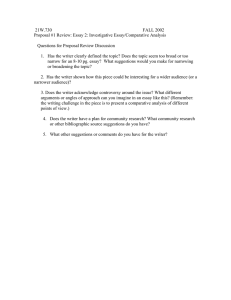Annotation Some Tips on Annotating Texts (from Writing Arguments
advertisement
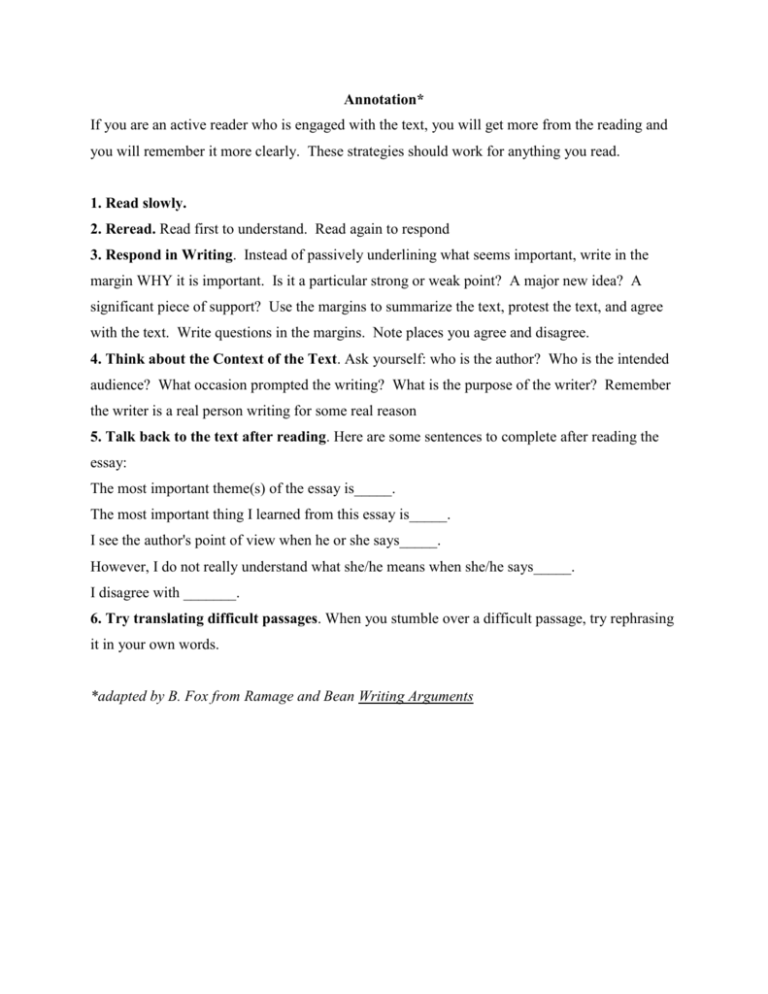
Annotation* If you are an active reader who is engaged with the text, you will get more from the reading and you will remember it more clearly. These strategies should work for anything you read. 1. Read slowly. 2. Reread. Read first to understand. Read again to respond 3. Respond in Writing. Instead of passively underlining what seems important, write in the margin WHY it is important. Is it a particular strong or weak point? A major new idea? A significant piece of support? Use the margins to summarize the text, protest the text, and agree with the text. Write questions in the margins. Note places you agree and disagree. 4. Think about the Context of the Text. Ask yourself: who is the author? Who is the intended audience? What occasion prompted the writing? What is the purpose of the writer? Remember the writer is a real person writing for some real reason 5. Talk back to the text after reading. Here are some sentences to complete after reading the essay: The most important theme(s) of the essay is_____. The most important thing I learned from this essay is_____. I see the author's point of view when he or she says_____. However, I do not really understand what she/he means when she/he says_____. I disagree with _______. 6. Try translating difficult passages. When you stumble over a difficult passage, try rephrasing it in your own words. *adapted by B. Fox from Ramage and Bean Writing Arguments
